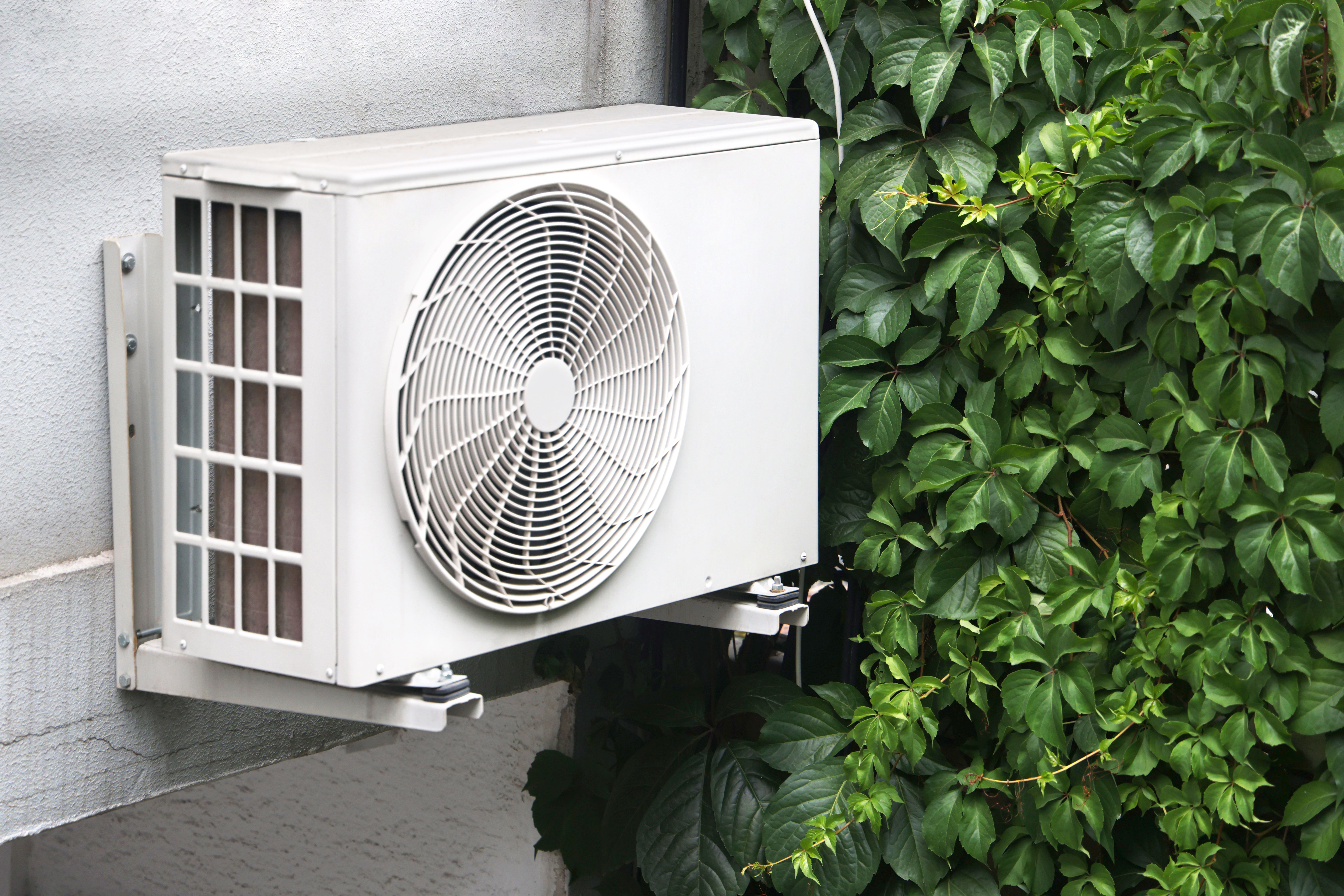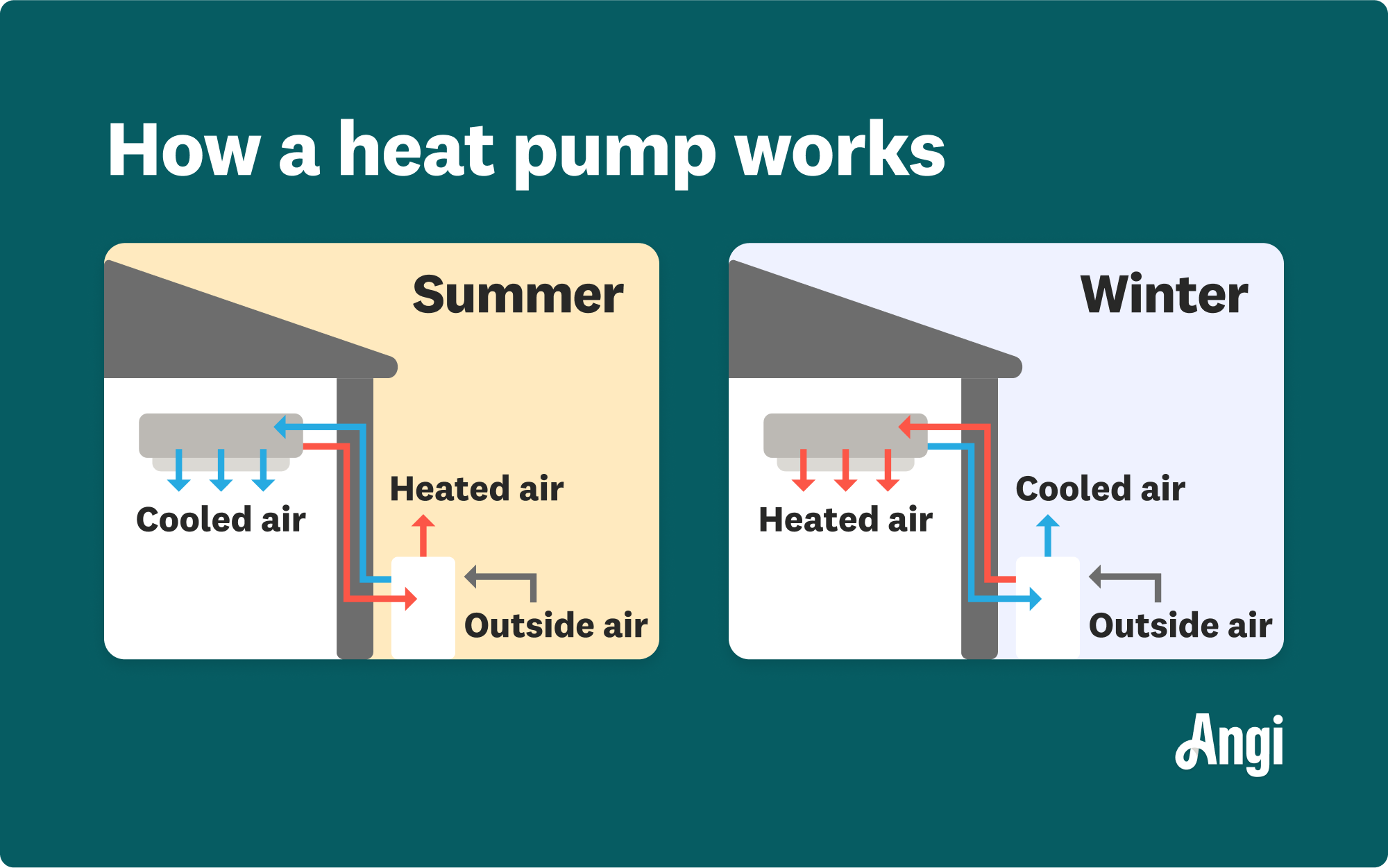
Explore how much an AC compressor costs to install based on cost factors like it’s type, brand, size, and local labor rates.
Heating and air conditioning service costs depend on your project and location. Check with a local pro for your specific job.
Your heat pump costs in Boston, Massachusetts, depend heavily on the heat pump’s type and size.
Air-source heat pumps cost less to install than ground-source heat pumps.
Your contractor’s labor rates and permit fees will also impact your overall costs.
With the Mass Save program, you can get a rebate of up to $10,000 on a high-efficiency heat pump.
The average heat pump cost in Boston, Massachusetts, is $9,219, but it’s common to pay anywhere from $4,988 to $13,616 for a new heat pump here. Some of the main cost factors for this project include the heat pump’s type, size, and efficiency level, as well as the price of professional labor. Here’s how each of those variables impacts your budget.
Your heat pump installation costs hinge on a handful of factors, ranging from the type of heat pump to its efficiency rating. Here’s what goes into your project’s total price.
Heat pumps both heat and cool your home and can be ducted or ductless. They work similarly to air conditioners, but heat pumps can reverse the cooling process and also warm your home.
In residential construction, there are two primary types of heat pumps: air source and ground source. Air-source heat pumps—which include ducted and ductless mini-split systems—are more common and less expensive to install. Ground-source heat pumps (also called geothermal heat pumps) are pricier up front due to their complex installation process.
| Heat Pump Type | Average Unit Cost |
|---|---|
| Ductless mini-split | $700–$6,000 |
| Air source | $1,500–$4,500 |
| Ground source | $2,400–$8,000 |
Listed in tons or British Thermal Units (BTUs), heat pump sizes measure a unit’s heating and cooling capacity. Larger-sized heat pumps are more powerful, so they can heat or cool your home more effectively. However, they also come with higher up-front costs.
You might think you need the largest possible heat pump to cope with New England’s cold winter weather. However, heat pump sizing is based on numerous factors (not just climate), so you should have an HVAC pro in Boston, Massachusetts, calculate the best size for your home.
| Heat Pump Size (in Tons) | Heat Pump Size (in BTUs) | Average Unit Cost |
|---|---|---|
| 2 | 24,000 | $1,200–$3,000 |
| 3 | 36,000 | $2,200–$5,800 |
| 4 | 48,000 | $3,000–$7,000 |

Since heat pumps provide heating and cooling, they have two different energy efficiency ratings: Seasonal Energy Efficiency Ratio (SEER), which expresses the heat pump’s cooling efficiency, and Heating Seasonal Performance Factor (HSPF), which refers to its heating efficiency.
On both scales, a higher rating means better efficiency—and that also means steeper prices. You can get an idea of how SEER ratings affect heat pump costs below:
| Heat Pump SEER Rating | Average Unit Cost |
|---|---|
| 15 | $1,800–$5,900 |
| 16 | $2,400–$6,200 |
| 18 | $2,900–$6,700 |
| 20 | $3,600–$9,500 |
Most heat pumps (except for ductless heat pumps) require functioning ductwork to circulate air throughout your home. If your air duct system is in poor condition, you’ll have to replace it when installing your new heat pump. In Boston, ductwork replacement costs anywhere from $537 to $2,355.
Don’t have a duct system? Adding new ductwork ranges from $3,000 to $7,500 per 300 linear feet.
While the heat pump itself accounts for a good portion of your overall costs, it won’t be your only expense. Here are a few other factors that impact your budget.
There’s no HVAC-specific licensing requirement in Massachusetts. Contractors don’t need a refrigeration license, either—unless they install units with more than 10 tons of refrigerant (which doesn’t really happen in residential settings).
However, even though there’s no city- or state-level requirement to handle refrigerants, heat pump installers in Boston must be certified by the Environmental Protection Agency (EPA) to work with refrigerants.
Also, if your project involves installing or replacing sheet metal ductwork, your contractor should have a valid sheet metal worker license from the Commonwealth of Massachusetts.
In Boston, you must have a permit to install a new heat pump. You might also need a sheet metal permit if you’re modifying or adding new sheet metal ductwork.
A good HVAC pro knows how to navigate the permit process in Boston and will pull any required permits on your behalf. You should see the permit costs listed in your quote. If you don’t, ask your contractor for a cost explanation.
If you install an air-source or ground-source heat pump in Boston, you may qualify for a rebate of up to $15,000 from Mass Save. Your rebate amount depends on the type of heat pump and whether you use it for whole-home or partial-home heating and cooling.

Adding a heat pump to your Boston property can be a worthwhile investment, often adding 5% to 7% to your property value. Since these versatile units offer heating and cooling, they’ll create a comfortable environment inside your home all year long. Plus, if you plan on selling soon, the next owner will appreciate having a reliable all-in-one heating and cooling system—especially if it’s a high-efficiency unit.
Home is the most important place on earth, which is why Angi has helped more than 150 million homeowners transform their houses into homes they adore. To help homeowners with their next project, Angi provides readers with the most accurate cost data and upholds strict editorial standards. We survey real Angi customers about their project costs to develop the pricing data you see, so you can make the best decisions for you and your home. We pair this data with research from reputable sources, including the U.S. Bureau of Labor Statistics, academic journals, market studies, and interviews with industry experts—all to ensure our prices reflect real-world projects.
Want to help us improve our cost data? Send us a recent project quote to [email protected]. Quotes and personal information will not be shared publicly.
From average costs to expert advice, get all the answers you need to get your job done.

Explore how much an AC compressor costs to install based on cost factors like it’s type, brand, size, and local labor rates.

Furnace cleaning is an essential annual chore to keep your home safe. Find out common furnace cleaning costs by type and size of furnace with this guide.

Average costs of HVAC inspections vary based on house size, location, and type of HVAC system. Follow our easy guide to gauge your home’s HVAC inspection cost.

Keep your home perfectly cool during the warm months. Learn about nine types of air conditioners and how to choose the right one for your home.

Learning how to secure a window AC unit will avoid personal injury and damage to your home. It will also protect against theft and break-ins.
How to clean your air conditioner depends on the unit type. Sometimes, a good hose-down is all you need if you have centralized AC. This guide can help with the cleaning process.